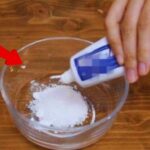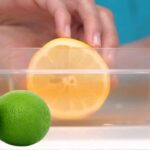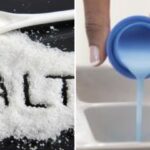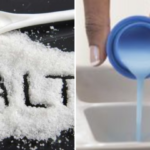1. Washing Vegetables with Salt
Adding salt to water while washing vegetables is a common practice for many of us. While salt can effectively remove eggs and worms, it also reduces the cleansing power of water.
Dr. Tan Dunci explains that the Agricultural Drug Toxicity Laboratory found that using salted water to wash vegetables not only fails to clean them but also aids in the faster penetration of pesticides.
Additionally, according to Dr. Tan Dunci, the government encourages farmers to dilute pesticides with water before application. This practice ensures that vegetables and fruits can be effectively rinsed with tap water.
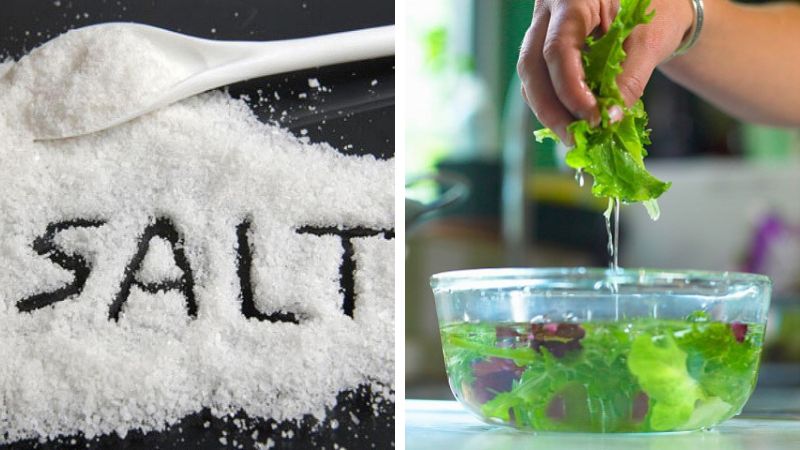
Washing Vegetables with Salt
Furthermore, Dr. Tu Ngu from the Vietnam Nutrition Association shares that using salted water to wash vegetables is a misconception. Overusing salted water can have negative health consequences. The high concentration of salt increases osmotic pressure, causing the vegetables to become salty. This can lead to kidney damage, high blood pressure, and cardiovascular disease.
2. Washing Vegetables with Rice Water
Rice water contains high levels of B-complex vitamins such as vitamin B1 and vitamin B12. Therefore, many homemakers use rice water to wash vegetables, believing that these vitamins will effectively clean the produce.
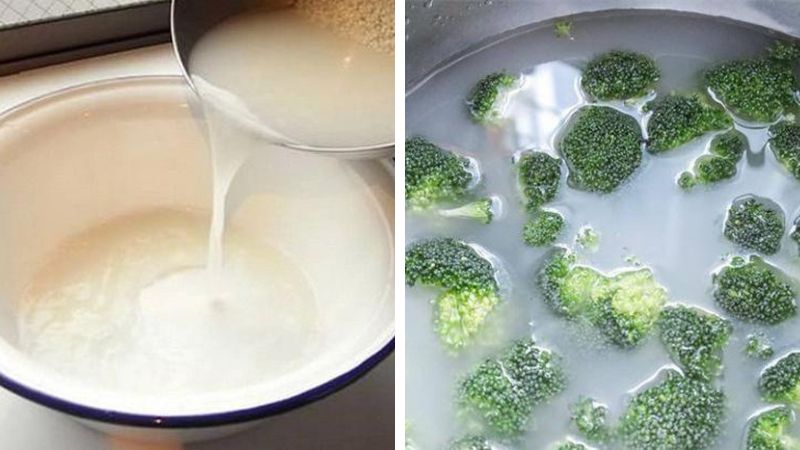
Washing Vegetables with Rice Water
However, according to Dr. Tan Dunci, the belief that rice water effectively cleans vegetables is purely psychological. In reality, rice water can only dissolve or partially clean vegetables with low residues of plant protection chemicals that do not cause acute toxicity.
For chemicals that have deeply penetrated the vegetables, soaking them in rice water will be ineffective. Moreover, rice may contain pesticide residues, insect eggs, and other harmful components. Thus, soaking vegetables in rice water may also have adverse health effects.
3. Using Baking Soda and Vinegar to Wash Vegetables
Pesticides usually exist in a combined form. Baking soda can make the toxins in vegetables more harmful if the pesticides are alkaline. In the case of acidic pesticides, using vinegar to wash the vegetables will make it harder to clean them effectively.
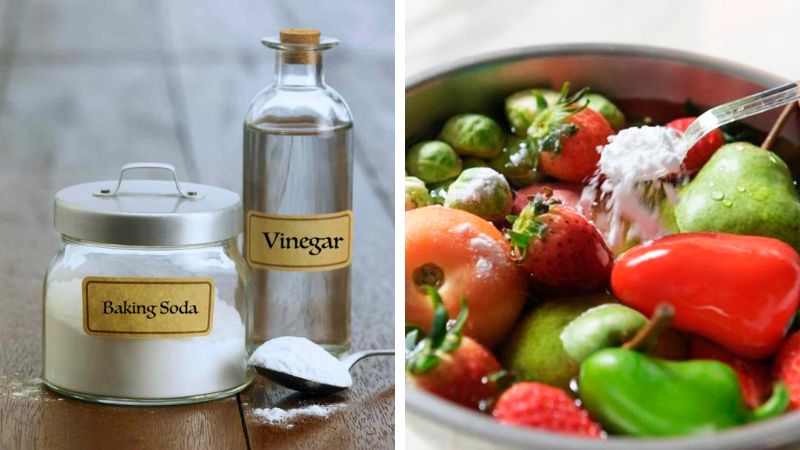
Washing Vegetables with Baking Soda and Vinegar
According to scientific sources, vinegar has antibacterial and antiviral properties, and it can break down the outer powder and fluff of the vegetables. A 10% vinegar solution can eliminate up to 90% of bacteria.
However, there is no research confirming that vinegar can completely remove pesticides. Therefore, if you choose to wash vegetables with vinegar, make sure to rinse them again with clean water afterward.
The Magic of Mixing Fabric Softener with Salt: Unveiling the Ultimate Power
Introducing a game-changing fabric softener that packs a powerful punch – an unexpected superhero for your household chores. This dynamic duo of softener and salt is a secret weapon, transforming tedious tasks into triumph with every wash. Prepare to be amazed as this dynamic duo works its magic, leaving your laundry soft, fresh, and simply irresistible.
























